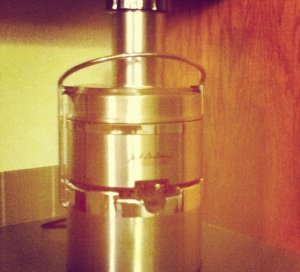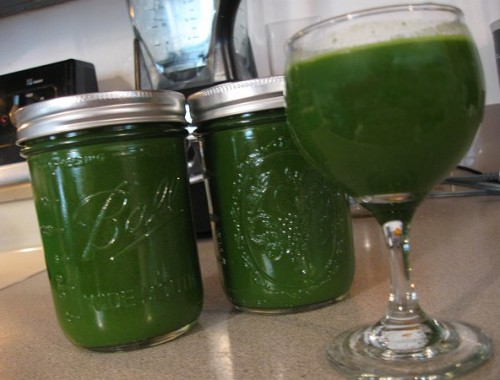Ginger is a spice often used in baking and Asian dishes. Raw ginger is often referred to as ginger root although technically it is not a root but a special type of plant stem called a rhizome. The ginger plant is related to turmeric and cardamom.
Ginger has been used for centuries for a variety of different ailments and is often used to make tea. Its positive effect on digestion is well-known but it’s also used to treat nausea, vomiting, upset stomach, colds, flu, headaches and coughing.
Gingerol is the active compound found in fresh ginger. It is chemically similar to capsaicin which is the active compound found in chili peppers. Ginger has a very recognizable taste with an earthy, zesty, pungent and warm flavor.
When ginger is dried or cooked some of the gingerol turns into other compounds like zingerone and shogaol. That means dried ginger may have a slightly different flavor and properties than fresh ginger does.
Anti-Nausea
Ginger has long been used to treat nausea, vomiting and upset stomach. A study by the University of Maryland Medical Center found that ginger was effective at treating nausea caused by pregnancy and chemotherapy.
In research by Brigham Young University, ginger was found to be more effective at treating motion sickness than the active ingredient (dimenhydrinate) found in over the counter motion sickness tablets.
Many cultures have a form of ginger tea and in Peru a form of ginger tea is used to treat stomach aches.
Anti-Inflammatory
The active compound in ginger, gingerol is a powerful anti-inflammatory agent. Gingerol inhibits the production of nitric oxide in the body which can form a damaging free radical called peroxynitrite. Peroxynitrite and other free radicals cause damage to cells which may accelerate aging and cause diseases like cancer.
Research by UCLA Biomedical Laboratory suggests that ginger juice is effective in the treatment of certain forms of arthritis such as rheumatoid arthritis and osteoarthritis.
Anti-Cancer
The anti-inflammatory properties of ginger may be particularly effective for preventing colon cancer.
Recent research at the University of Michigan Medical School is the strongest evidence yet that ginger helps to prevent colon cancer by reducing inflammation in the gut.
“The ginger was able to decrease the level of inflammatory markers in the gut tissue… It decreases inflammation. We know that increased inflammation, (and) chronic inflammation in the gut tissue is highly associated with developing precancerous lesions or cancerous polyps.” says study researcher Suzanna M. Zick.
There was also research done on tropical ginger in 2009 that found there was a reduction in the growth of colon cancer tumors. A compound called zerumbone found in tropical ginger was able to stop cancer cell growth and also killed invading cancer cells in addition to reducing overall inflammation in the colon.
Raised Immunity
Ginger raises immunity in several ways. Firstly it contains compounds which are antimicrobial (killing or inhibiting the growth of microorganisms such as bacteria and fungi). Ginger has also been shown to activate an important part of the immune system.
Ginger has been shown to activate special cells in the body called T lymphocytes or T cells. These cells are specialized white blood cells that are capable of seeking out cells infected with viruses and killing them. They also help to destroy tumor cells. This means that ginger enhances your immune system boosting your ability to fight infection and disease.
Another interesting effect of consuming ginger is that it warms the body and causes sweating. This may sound like an undesirable effect but it’s been shown that there is actually a germ fighting agent contained in sweat called dermcidin.
Dermcidin has antibacterial and antifungal properties and can act as a natural sanitizer protecting your body from infection.
Improved Circulation
Ginger improves blood flow by expanding the blood vessels. It also acts as an anti-coagulant, preventing blood platelets sticking together in the same way that aspirin does. This means it can help prevent a potentially fatal blood clot forming and keep blood moving freely throughout the body.
Improved Digestion
Ginger root contains zingibain, a proteolytic enzyme that helps to break down proteins improving digestion. Ginger also works to neutralize stomach acid and increase the secretion of digestive enzymes in the stomach.
Buying Ginger
Ginger is actually available in two different forms, young and mature. Most of the ginger available is mature ginger and unless you’re in an Asian market or specialty store you’ll probably be unable to find young ginger. It’s fine to use mature ginger and this is what most people juice with.
Always check fresh ginger before you buy it. It should be firm and smooth. Pay close attention to any places where the ginger was broken away from the rest of the plant as these can sometimes mold. You don’t want to be juicing with moldy ginger!
Storing Fresh Ginger
It’s best to store fresh ginger in the fridge. Always keep it in a plastic bag (zip top bags work best) or wrapped tightly in kitchen wrap.
It may last a week or two if stored like this but always check your ginger for signs of molding and discoloration before juicing it and if in doubt throw it out!
You can also freeze it and it lasts quite a long time when frozen, although again be careful for molding and discoloration.
Juicing with Ginger
For the most benefit you should use fresh ginger which is widely available. Powdered ginger is still very beneficial though whenever fresh ginger is unavailable. For most people a piece of ginger root about 1/2-1 inch will be adequate but some people (me included) may like more than this.
The strength of ginger can vary depending on age and variety. Younger ginger tends to be less spicy but is harder to find. The more common mature ginger tends to be spicier.
It’s a good idea to wash your ginger. If it’s non organic or shriveled then it’s also a good idea to peel it before juicing.
One trick to juicing ginger is to juice it first and then juice other water rich ingredients after. This will help wash out as much of the ginger juice as possible.
Ginger works well when combined with lime, lemon, apple, pear, carrot, spinach, fennel, celery and parsley.
For a full nutritional analysis of ginger be sure to visit Juicing Book’s page on ginger.
Ginger Juice Recipes
Here are some great juice recipes to try with ginger!
Breakfast Pear
- 3 pears
- 2 sticks of celery
- 1/2 inch of ginger root
Source: “The Big Book of Juices” by Natalie Savona
Spiced Carrot
- 3 carrots
- 1 spear broccoli
- 1/2 cup spinach leaves
- 1/2 inch ginger root
- 1/2 tsp cinnamon
- 1/8 tsp cayenne pepper (or to taste)
Source: “The Juicing Bible” by Pat Crocker
Mint Refresher
- 2 stalks fennel
- 1/2 cucumber
- 1/2 green apple
- 1 small handful of mint
- 1 inch piece of ginger root
Source: “The Juice Lady’s Guide To Juicing For Health” by Cherie Calbom
Super Gallbladder Assister
- 1 bunch spinach
- 1 cucumber
- 1/2 bunch celery
- 1 bunch parsley
- 1/2 inch ginger root
- 2 apples
- 1/2 lime
- 1/2 lemon
Source: “The Everything Juicing Book” by Carole Jacobs and Chef Patrice Johnson







6 Comments
Ginger juice and I might not need coffee in the morning…
You can make a great tea with lemon and ginger. I also add garlic sometimes although that’s not for everyone!
Hi Denise,
Nice article on Ginger. It has so many benefits! I use it occasionally, but honestly I’m still trying to get use to it. I know in the beginning I was adding too much. It doesn’t take a lot for me. There are so many benefits, I just feel the need to work it in to some of my juices. Thanks for the reminder!
I’m lucky because I really really like Ginger! I’m adding it to my juice all the time. Now if only I could say the same for beets…
So much helpful info in one place! After my morning juice shot that included a lot of fresh ginger, it was nice to read about all the healthful benefits. I may be the last person to find this tip, but I now know that it’s really easy to peel ginger with a spoon. It smoothes away only the peel and none of the root!
Glad you found this post useful Rachael! I’m really into my fresh ginger and like a lot in my juices!